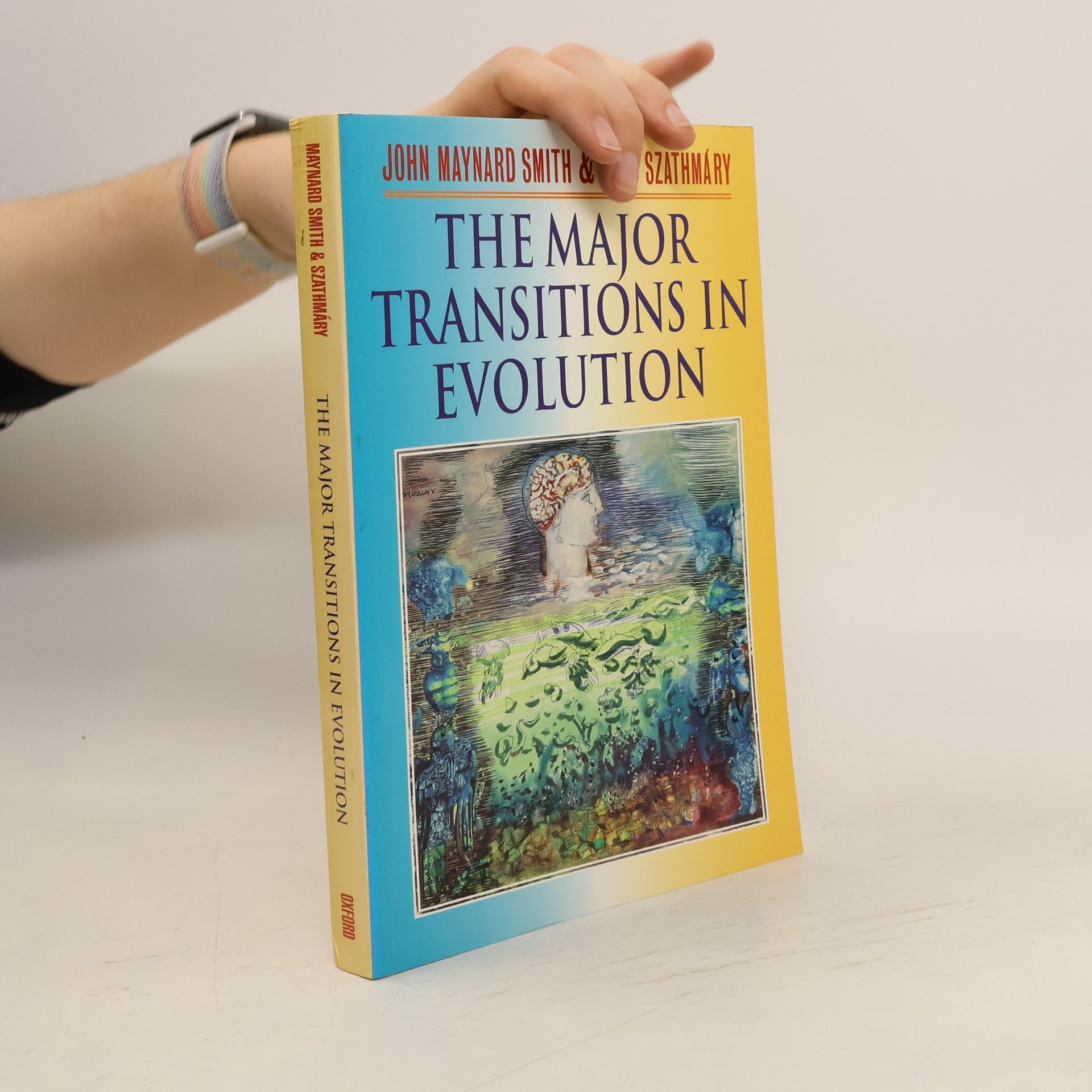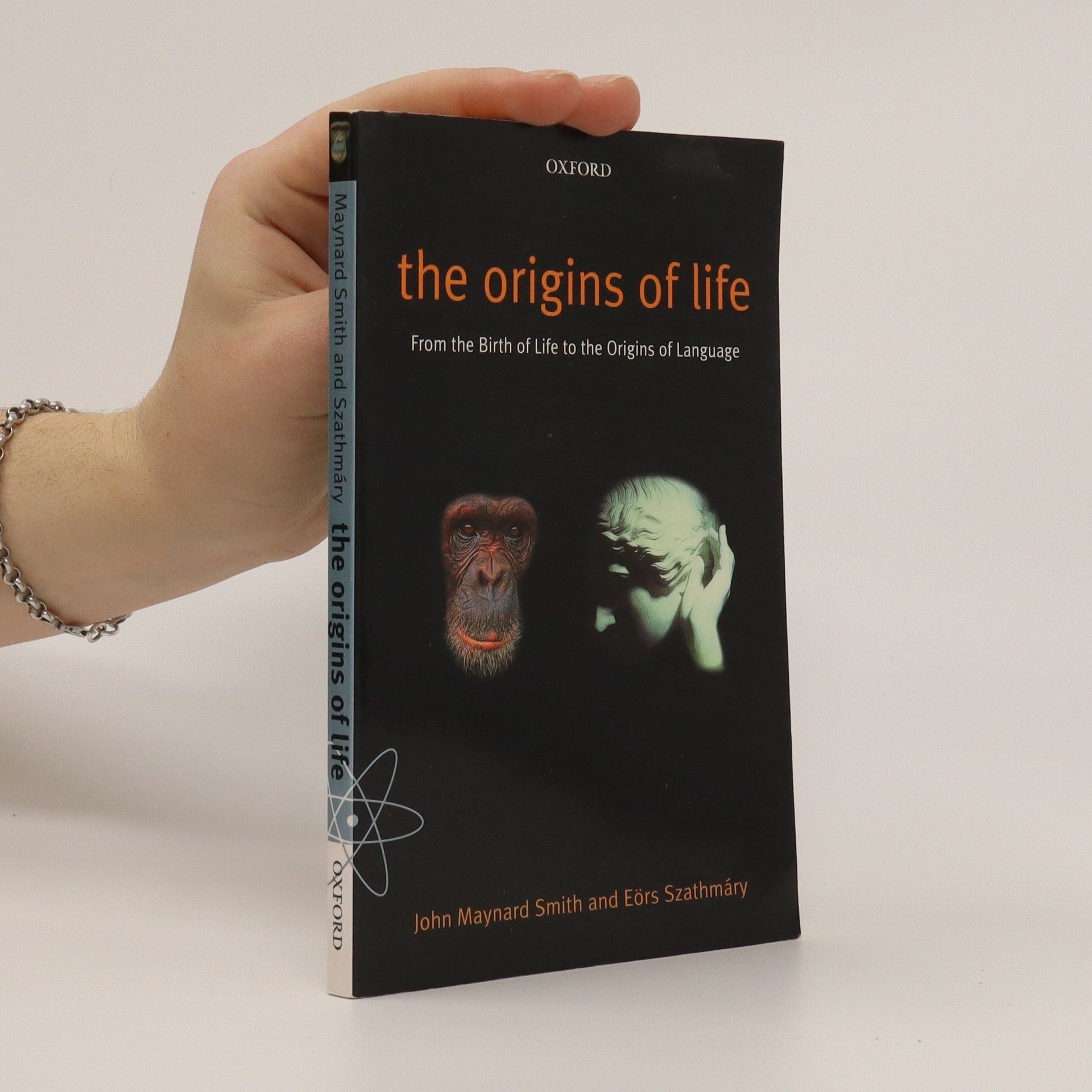The origins of life. From the birth of life to the origin of language
- 192pages
- 7 heures de lecture
Presents, for the general readership, the novel picture of evolution proposed in the 1995 book, The major transitions in evolution.
Ce généticien évolutionniste britannique fut l'un des biologistes les plus importants de son époque, dont les travaux ont profondément marqué notre compréhension des processus évolutifs. Son approche novatrice de la théorie des jeux et de la biologie évolutive a ouvert de nouvelles voies de recherche et de compréhension du comportement des organismes. Ses idées continuent d'inspirer les scientifiques et les étudiants du monde entier qui cherchent à percer les complexités de la vie.




Presents, for the general readership, the novel picture of evolution proposed in the 1995 book, The major transitions in evolution.
Throughout the history of life, significant changes have occurred in how genetic information is organized and passed down. These transitions encompass the origin of life, the emergence of eukaryotic cells, sexual reproduction, the development of multicellular organisms, the rise of cooperation, and the unique language capabilities of humans. This ambitious work offers a unified exploration of these transitions, highlighting the similarities among them—such as the formation of chromosomes from replicating molecules and the assembly of cells into multicellular entities. The authors illustrate how understanding one transition can illuminate others, revealing a common theme: after a major transition, some entities lose their ability to replicate independently, relying on a larger whole for reproduction. They delve into this pattern and explore why selection at lower levels does not disrupt higher-level selection, proposing a compelling theory of cooperation's evolution across varying complexities. Engagingly written and richly illustrated, this book is accessible to anyone with an undergraduate background in biology and serves as an excellent resource for advanced discussions on evolution, covering diverse topics from molecular biology to insect societies.
Dieses Buch ist ein Meilenstein auf dem Weg zu einem tieferen Verständnis evolutionärer Prozesse. Das zentrale Thema sind die großen „Übergänge“ in der Entwicklung des Lebens - Schritte, in denen die Organisation und die Art der Weitergabe genetischer Information von einer Generation zur nächsten jeweils einen grundlegenden Wandel erfuhren. Einheiten, die sich zuvor unabhängig vermehren konnten, verloren diese Fähigkeit als Teile eines größeren Ganzen. Zu jenen evolutionären Weichenstellungen zählen - nach dem Ursprung des Lebens selbst - die Entstehung der Chromosomen, das Auftreten der ersten eukaryotischen Zellen, die Entwicklung der geschlechtlichen Fortpflanzung, das Erscheinen vielzelliger Lebensformen und die Entstehung von Tiergesellschaften. Die Sprache als einzigartige Fähigkeit des Menschen markiert einen letzten großen Übergang. Damit überspannt das einzigartige Buch einen Zeitraum von vier Milliarden Jahren und ein Themenspektrum von der präbiotischen Chemie bis zur Linguistik. Das vereinheitlichende theoretische Konzept, dem die Autoren folgen, ermöglicht einen völlig neuen Blick auf den Gesamtprozeß der Evolution und seine Gesetzmäßigkeiten.